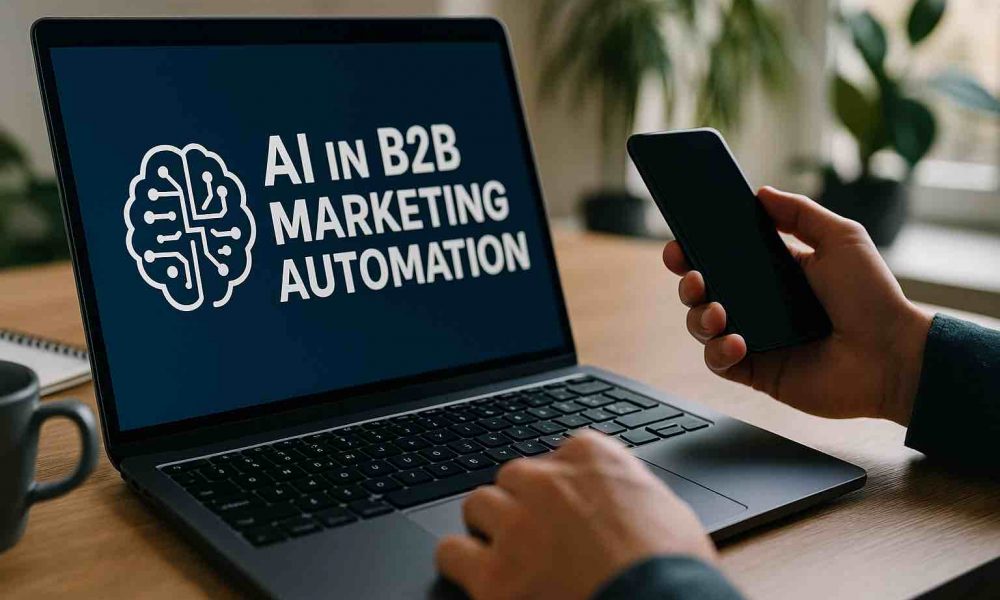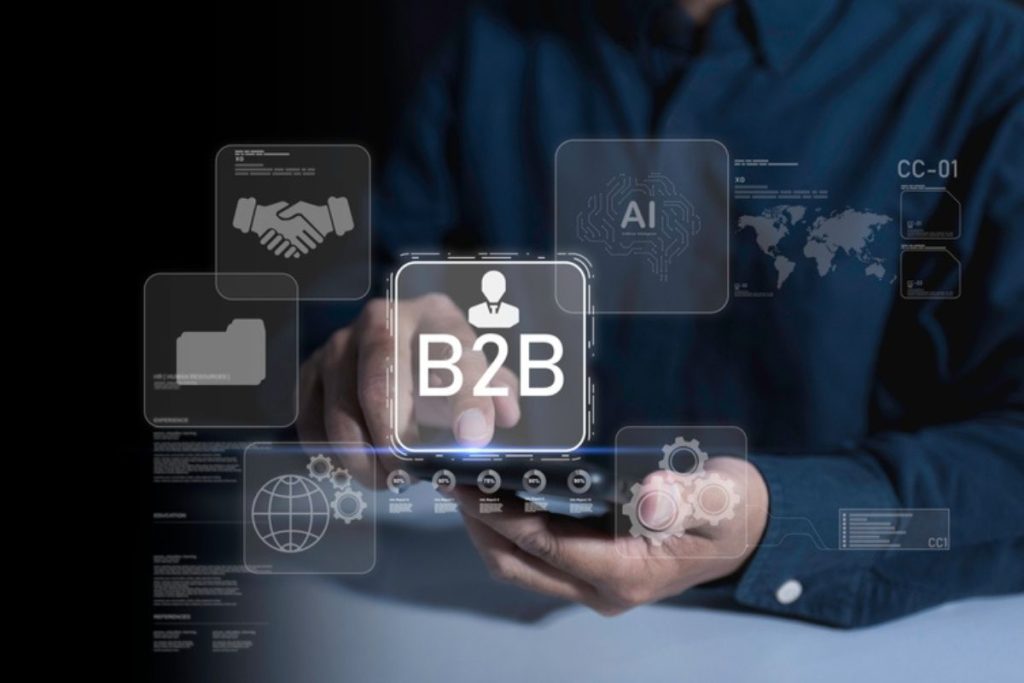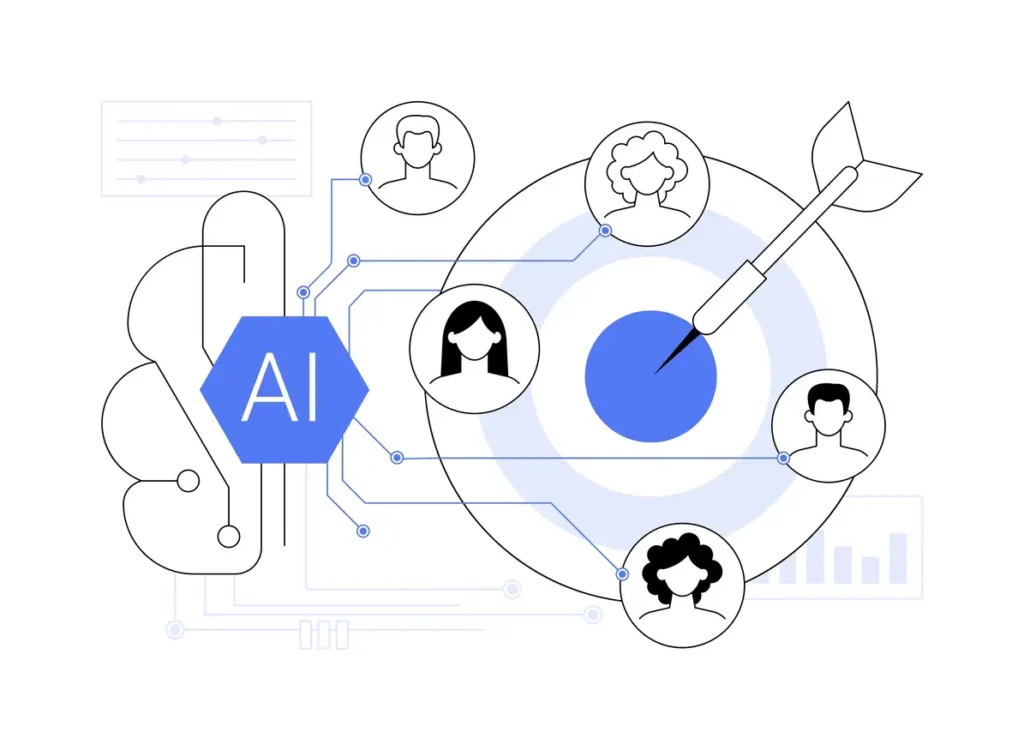Integrating Growth Systems For B2B with existing workflows: A step-by-step guide
Open Effectiveness and Development With AI Automation for B2B Companies
AI automation is changing the landscape for B2B companies. It reduces and improves operations dependence on human treatment. This change enables services to make quicker, data-driven decisions. As companies check out which processes to automate, they have to likewise think about the right devices to carry out. Nevertheless, challenges continue to be in embracing AI technology. Minarik AI. The implications of these adjustments can shape the future of numerous firms in means yet to be completely understood
Understanding AI Automation in the B2B Context
As organizations significantly seek efficiency, recognizing AI automation in the B2B context ends up being important. AI automation entails using sophisticated technologies to enhance operations, lower human treatment, and boost decision-making processes. In the B2B landscape, this can materialize in different types, such as automating customer support communications, handling supply chain logistics, or enhancing advertising and marketing projects. Business can utilize AI to examine huge datasets promptly, enabling them to recognize trends and understandings that inform critical choices. AI systems can incorporate perfectly with existing modern technologies, providing a cohesive system for managing service features. This understanding prepares for companies to discover how AI can change their procedures, improve efficiency, and inevitably foster sustainable growth in a competitive market.
Trick Advantages of Executing AI Automation

Identifying Processes Ideal for Automation

Choosing the Right AI Devices for Your Business
When B2B business take into consideration automating their processes, picking the best AI devices becomes crucial for achieving preferred end results. Companies must begin by assessing their special demands and objectives, making sure alignment with company objectives (Business Process Automation). Examining the scalability, versatility, and integration abilities of prospective tools is critical, as these variables identify long-term efficiency. Organizations should additionally think about user-friendliness and the degree of support provided by suppliers, as these components can impact successful execution. On top of that, examining consumer testimonials and case research studies can give understandings right into just how particular AI services carry out in real-world situations. By diligently picking AI tools that fit their operational requirements, B2B companies can enhance effectiveness and drive growth while lessening possible disturbances
Getting Over Challenges in AI Adoption
B2B companies typically run into substantial obstacles in taking on AI technologies, particularly problems connected to data quality and resistance to change management. Poor information top quality can prevent the effectiveness of AI systems, while staff member hesitation to welcome brand-new processes can stall implementation initiatives - Growth Systems For B2B. Resolving these obstacles is necessary for effective AI combination and maximizing its prospective benefits
Data High Quality Issues
Guaranteeing high information high quality is necessary for the successful fostering of AI innovations in business-to-business environments. Imprecise, incomplete, or obsolete data can badly hinder AI efforts, causing wrong insights and bad decision-making. Firms often encounter difficulties such as information silos, variances across various sources, and an absence of standardized information formats. To get over these problems, companies need to purchase information cleansing, combination, and governance processes. Implementing robust information administration techniques guarantees that the details fed into AI systems is trusted and appropriate. Cultivating a society of data high quality recognition amongst employees can improve information precision over time. By dealing with information top quality concerns, B2B business can launch the complete possibility of AI automation, driving efficiency and growth.
Modification Monitoring Resistance

Measuring the Influence of AI Automation
Determining the impact of AI automation in B2B firms needs a clear understanding of essential efficiency signs (KPIs) that line up with business purposes. Efficient information evaluation techniques are crucial for translating the results, while durable ROI assessment approaches assist determine the economic benefits of automation efforts. With each other, these components give a substantial framework for examining AI's contributions to business success.
Key Efficiency Indicators
Key efficiency indications (KPIs) act as essential devices for B2B companies to examine the effectiveness of AI automation efforts. By developing clear metrics, organizations can gauge improvements in functional effectiveness, price reduction, and profits growth directly attributable to automation. Usual KPIs include cycle Minarik AI time reduction, mistake prices, customer satisfaction scores, and worker performance levels. These signs give insights into exactly how AI systems are maximizing processes and improving total efficiency. Additionally, tracking KPIs allows firms to recognize areas for further enhancement and to straighten AI automation initiatives with strategic company goals. Inevitably, a distinct structure of KPIs guarantees that B2B companies can quantitatively examine the effect of AI automation on their procedures and drive continual development.
Information Analysis Techniques
Effective data analysis methods play a necessary duty in reviewing the influence of AI automation within B2B companies. By utilizing analytical methods, companies can recognize fads and patterns in operational information, permitting them to assess the effectiveness obtains attained via automation. Strategies such as regression evaluation and time collection projecting supply insights into how AI-driven processes influence performance and decision-making. In addition, information visualization devices can successfully interact findings to stakeholders, helping with informed strategic choices. Equipment understanding formulas can even more enhance evaluation by forecasting future results based on historic information, providing actionable understandings. Eventually, these methods enable B2B companies to determine success and enhance their AI automation initiatives, making certain placement with company objectives and boosting general performance.
ROI Analysis Techniques
Evaluating the return on financial investment (ROI) of AI automation is necessary for B2B business looking for to comprehend the financial effects of their technological campaigns. Business can use different ROI assessment methods to evaluate the performance of AI applications - Growth Systems For B2B. One efficient approach includes computing expense financial savings by comparing functional expenses prior to and after automation (Minarik AI). Additionally, gauging efficiency enhancements through crucial performance indications (KPIs) assists quantify the advantages of AI. Client complete satisfaction metrics can also supply insights right into the effect of automation on solution high quality. To guarantee a detailed evaluation, companies must consider both straight abstract advantages and monetary returns, such as boosted decision-making abilities and affordable advantage. This complex evaluation allows B2B companies to make educated choices concerning future financial investments in AI technology
Future Patterns in AI Automation for B2B Companies
What advancements exist ahead for AI automation in B2B business? Emerging patterns indicate a significant change in the direction of enhanced information analytics capacities, allowing organizations to make more informed decisions. Predictive analytics will end up being progressively essential, enabling firms to anticipate market changes and client demands. Additionally, the combination of AI with Internet of Things (IoT) modern technology is expected to streamline procedures by supplying real-time understandings and automation of procedures. Business will also concentrate on boosting customer experiences through customized advertising and marketing driven by AI formulas. In addition, innovations in all-natural language handling will certainly help with far better interaction between organizations and clients. As these patterns advance, B2B companies need to adapt to leverage AI automation effectively, making certain continual development and competitive advantage.
Frequently Asked Inquiries
What Industries Advantage the Many From AI Automation in B2B?
Production, money, healthcare, and logistics markets profit one of the most from AI automation in B2B. These sectors take advantage of AI to optimize procedures, improve decision-making, and improve total functional efficiency, driving significant development and technology.
Exactly How Does AI Automation Effect Employee Duties and Responsibilities?
AI automation improves staff member duties and obligations by streamlining recurring tasks, enabling workers to focus on strategic initiatives. This change promotes skill development, improves productivity, and urges collaboration, ultimately driving organizational development and innovation.
What Prevail False Impressions Regarding AI Automation in B2B?
Typical mistaken beliefs concerning AI automation in B2B include worries of work loss, beliefs that AI can fully replace human judgment, and underestimating the relevance of partnership in between AI systems and staff members for optimal results.
Just How Can Organizations Make Certain Data Personal Privacy With AI Automation?
Organizations can ensure data personal privacy with AI automation by carrying out robust file encryption methods, sticking to regulative compliance, carrying out normal audits, and training staff members on information dealing with techniques to reduce threats and protect sensitive details.
What Are the Expenses Associated With Carrying Out AI Automation?
The expenses related to executing AI automation include software program purchase, infrastructure upgrades, training workers, continuous maintenance, and potential downtime throughout integration. In addition, firms might incur expenditures connected to data security and conformity actions.
Determining the effect of AI automation in B2B business needs a clear understanding of key performance signs (KPIs) that line up with organization purposes. Trick performance indicators (KPIs) offer as crucial devices for B2B firms to analyze the effectiveness of AI automation campaigns. Effective data evaluation strategies play an essential role in evaluating the impact of AI automation within B2B companies. Reviewing the return on investment (ROI) of AI automation is essential for B2B companies looking for to comprehend the economic ramifications of their technological efforts. What developments lie in advance for AI automation in B2B firms?